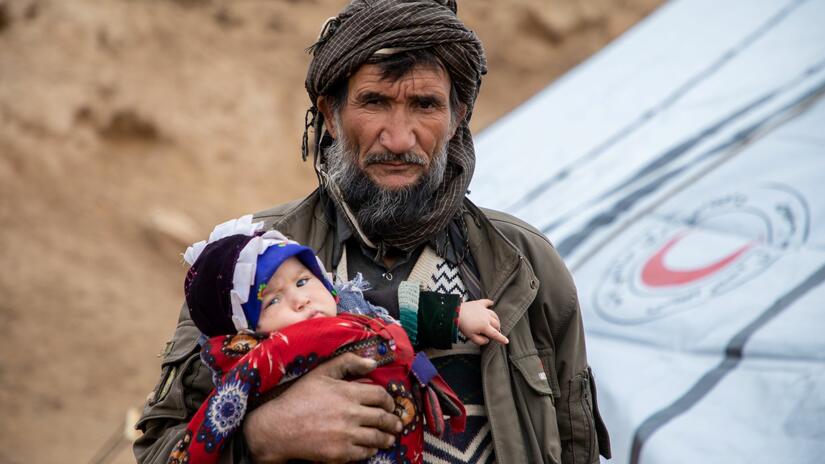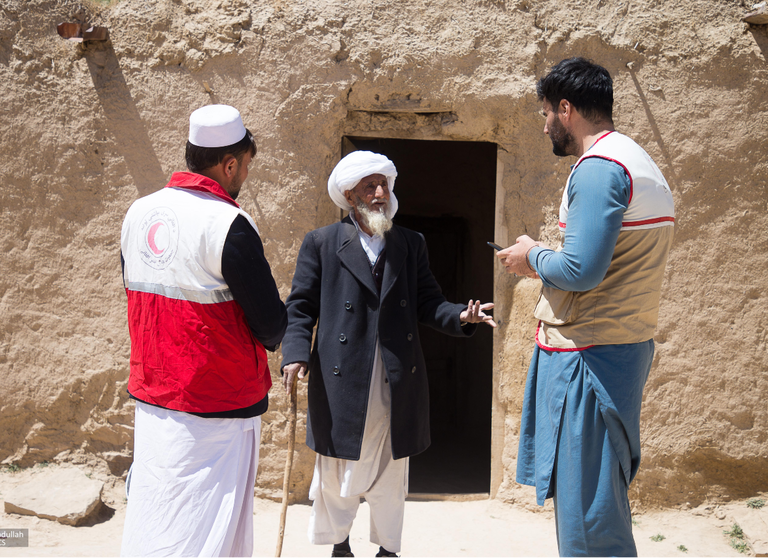Kuala Lumpur/Kabul/Geneva 17 June – The International Federation of Red Cross and Red Crescent Societies (IFRC) is calling for increased global support to stem spiralling hunger in Afghanistan as one of the world’s worst humanitarian crises threatens millions.
Intense summer heat and a weak spring rainy season have effectively spelled doom for a meaningful harvest in the country.
Amidst mounting poverty, 70 percent of households are unable to meet basic food and non-food needs, with particularly devastating effects for homes headed by widows, the elderly, people with disabilities, and children. An estimated 3 million children are at risk of malnutrition and susceptible to diseases such as acute watery diarrhoea and measles due to weakened immunity.
Thousands of people have resorted to begging in the streets, with prices of essential items soaring in the face of declining remittances, a crumbling economy and rising poverty.
Dr Mohammad Nabi Burhan, Secretary General of Afghan Red Crescent, said: “This is one of the worst humanitarian crises I have seen in Afghanistan, in more than 30 years as a humanitarian aid worker. It is horrifying to see the extent of hunger and resurgence of poverty that we have fought so hard to eradicate.
“It is particularly worrying for Afghans in rural and remote areas, where some of the country’s poorest communities face widespread destitution and very high levels of malnutrition after their crops failed or livestock perished.
“A lack of food should not be a cause of death in Afghanistan. There needs to be a concerted international effort to continue critical humanitarian assistance across the country so that lives can be saved.”
Afghan Red Crescent is ramping up its response operation using available funds, giving immediate priority to food and cash distributions as well as providing health services via more than 140 health facilities across Afghanistan. However, the latest reports show much more assistance will be needed.
Necephor Mghendi, IFRC’s Head of Delegation for Afghanistan, said:
“The increasing economic hardship is a bitter blow for families in Afghanistan who are trying to cope with one of the worst droughts and food crises they have ever faced, leaving children malnourished and far more vulnerable to preventable disease.
“As well as providing critical relief to people struggling in the face of severe drought and hunger, livelihood interventions should be supported to enable people to restore means of earning an income.
“There is also a need for investment in local institutions that deliver vital services in the cities as well as remote areas. Locally staffed, well-functioning institutions are proven to help the most vulnerable, including children, women, and the elderly in every corner of Afghanistan.”
As part of this ongoing support, the IFRC is urgently appealing to the international community for 80 million Swiss francs to support the Afghan Red Crescent to deliver emergency relief, health services and recovery assistance to more than 1 million people in the provinces hit by multiple crises.
For more information or to arrange an interview, contact:
Asia Pacific Office:
Joe Cropp, +61 491 743 089,
[email protected]





